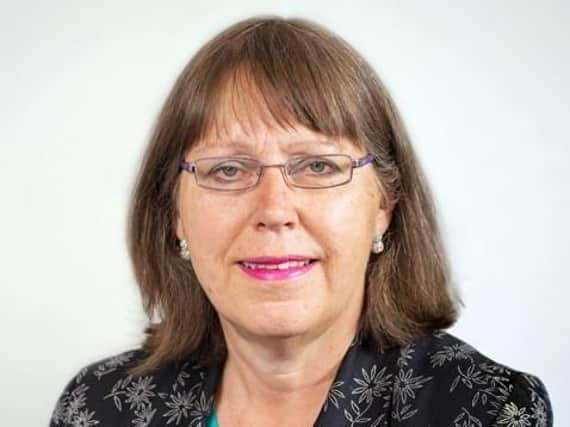New strategy reduces number of children in care "considerably", despite report saying Lancashire has the highest number of cases in England


The report, by Price Waterhouse Cooper with charity Home for Good, stated that Lancashire had 2,116 children in care, the most in England, followed by Birmingham with 1,946.
But experts in the county have slammed the statistics as out of date, and insist that while there was a peak between 2016 and 2019, a new innovative approach means the figures are coming down and there is no need for alarm.
Advertisement
Hide AdAdvertisement
Hide Ad"The numbers were high, no doubt", said Edwina Grant, executive director of Education and Children's Services for Lancashire County Council, "but they're coming down and we're not taking as many children in."
Ms Grant says the figures used in the report are from 2019, and currently there are 1,971 children in care, a reduction of 145.
Ms Grant said: "We have reduced the number considerably, but Lancashire is a big local authority, so we're always likely to have more than smaller authorities."
>>>Click here to read about 'top up' allowances for foster carers in Lancashire.
Advertisement
Hide AdAdvertisement
Hide AdMs Grant said the number of children in the council's care was "a trend we could see and planned for", with Lancashire County Council being given £6.3m from the Department for Education's Strengthening Families Protecting Children programme to establish a programme based on the Family Safeguarding Model founded by Hertfordshire County Council in 2015.


The model has significantly reduced the number of children being taken into care in six years.
The aim of the new scheme is to supporting families to get the help they need so that their children can remain safely at home once they have been referred to children's services.
Social workers are now focussing on entire families rather than only children, working alongside psychologists and mental health workers, domestic abuse officers and practitioners, and recovery workers, so parents can access support within one team.
>>>Click here to read how the scheme was launched.
Advertisement
Hide AdAdvertisement
Hide AdLancashire's new strategy was launched in January after months in planning. In total, 21 multi-disciplinary teams across Lancashire are working together, with particular support around the "toxic trio" of domestic violence, mental health and substance misuse, which are often linked to children entering the care system.
Helplines to all three of these areas have increased during lockdown.
"This approach is very much personal to families. It's a partnership and we don't assume families have these problems", said Ms Grant.
"It's beginning to work beautifully. Families are really appreciating the involvement they're getting.
Advertisement
Hide AdAdvertisement
Hide Ad"And staff are finding that their work loads smaller because they're working with less families, so it's better for everyone."
Ms Grant said the council's position is always "to support families to succeed" in Lancashire, and that taking children into care is a last resort.
She said: "Children must be at severe risk of harm, and you do everything you can to stop that happening. Very few children are taken into care".
Predominantly it is foster families who providing the care, and for some, residential homes. Where possible, Lancashire children are kept in Lancashire.
Advertisement
Hide AdAdvertisement
Hide Ad>>>Click here to read how adoption changed one Lancashire family's life changed overnight.
According to the Price Waterhouse Cooper report, the likelihood that a child will enter the care system has increased by nearly 25 per cent in the last 20 years, from 1 in every 180 children to 1 in every 140 children.
It states that the cost of the UK care system costs society an estimated £8.8 billion a year, and that nearly one in three children in the care system have at least one parent who was in care – this inter-generational cycle accounts for £2.8 billion (3 per cent) of the cost of the care system
The report found that many care leavers were often left without ongoing support and the safety net of a family when they left the care system at the age of 18. It argued that the ideal outcome at this age should not be so much to achieve independence as to be embedded in a community and wider society, gaining support from others while making a contribution as an individual.
Advertisement
Hide AdAdvertisement
Hide AdMs Grant said that LCC were already working to support young adults in this way.
She said: "We don't just say goodbye at 18, we give an intensive amount of support that then tales off."
She belives that the work being done now will lead to noticeably less intergenerational cases in the future, adding: "Care is ever so much better over the last 20 to 30 years.
"The care system is very safe and we're seeing links with schools, healthcare and police."
Advertisement
Hide AdAdvertisement
Hide AdLancashire County Council is always on the look-out for people who are interested in fostering or adopting children.
Anyone interested is asked to visit: lancashire.gov.uk/adoption or call 0300 123 6723 for a chat with an adoption expert. Lancashire County Council has children of all ages and from difference backgrounds who need to find a permanent family home.